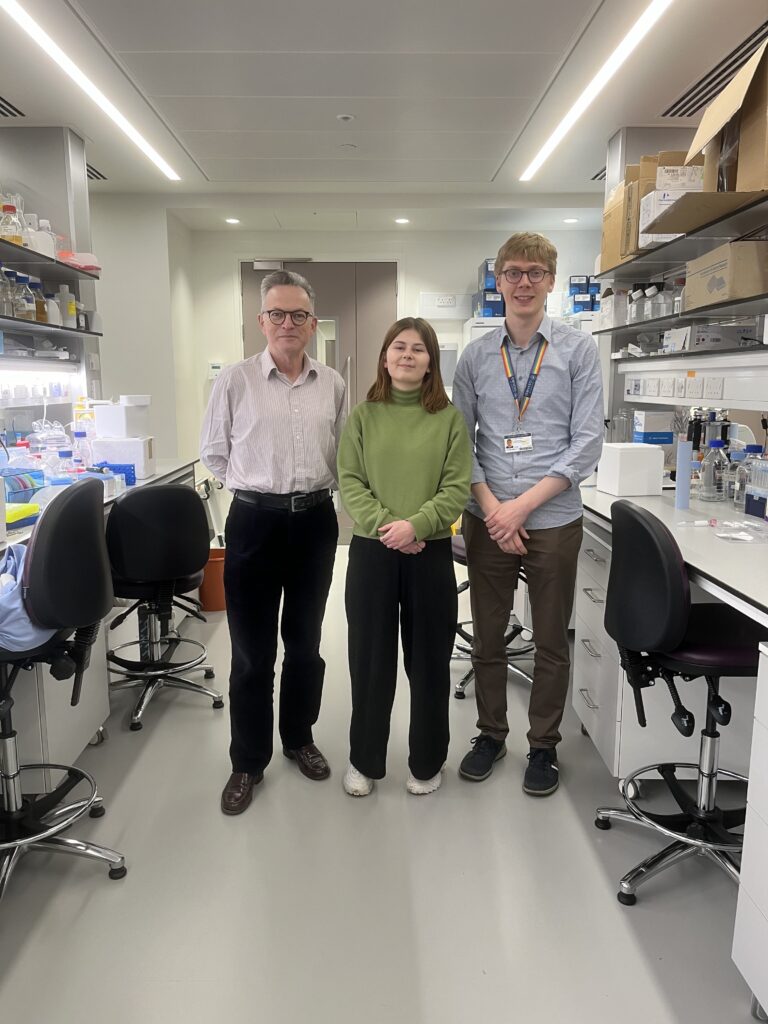What is MND
Find support
I have MND
I am supporting someone
Get involved
Research
About MND Scotland
What’s new?
© MND Scotland 2026
© MND Scotland 2026

Lara Nikel moved to the UK from Germany to study Psychology at the University of York. She then completed a Masters in Neuroscience at the University of Oxford as she wanted to understand the inner workings of the brain.
Her work during her master’s degree and subsequent employment as a research assistant focused on using induced pluripotent stem cells (iPSCs) to model the mechanisms underlying neurodegenerative and neuromuscular disorders. This guided her research focus towards MND and how iPSC models can be used to unravel the contributions of different cell types to the disease.
Lara said: “During my PhD, I’m hoping to use iPSCs to enhance our understanding of how non-neuronal cells like microglia affect the pathophysiology of MND. I’m excited to join this research community in their efforts to better understand this life-altering condition.
“I’m very grateful for the opportunity to contribute to this essential research which was made possible by the generous support of MND Scotland.”
Amyotrophic lateral sclerosis (ALS) is the most common form of MND, accounting for about 90% of cases. While we know that it leads to the death of motor nerve cells, the contribution to this process of other cells in the brain and spinal cord is currently less clear.
When nerve cells are damaged, the brain reacts through a network of supporting cells called microglia, which act to clear up the damage. This process has the potential to be helpful or harmful.
MND Scotland is providing over £85,000 over the next three years to study the relationship between the actions of microglia and MND.
Lara will be studying this by using induced pluripotent stem cells (iPSC), which are created from donated skin cells, in this project provided by people with MND who have an error in the gene TARDBP. This gene error leads to an alteration in TDP-43, a protein that we know accumulates in brain cells (both the motor neurons and microglia) in most cases of ALS.
Using these iPSC cells in the laboratory, Lara’s project will attempt to understand what effect this TDP-43 mutation has on microglia activity. Particularly, asking if the activity of disease-microglia could contribute to the death of motor neurons, and whether drugs that target microglia might be able to prevent this cell death.
Additionally, Professor Talbot, Dr Vahsen, and Ms Nikel want to find out whether any chemicals released from microglia could be used as a biomarker for monitoring the response to treatment in ALS.
“Non-neuronal cells such as microglia are very important for the proper functioning and survival of motor neurons. Lara’s project aims to understand the impact of MND-associated genetic errors in the TARDBP gene on microglial function and whether microglia with the deficient gene contribute to motor neuron death in MND. We are very grateful to MND Scotland for their generous support that allows us to pursue this project.”
Dr Björn Vahsen, Postdoctoral Researcher at the University of Oxford and Fulford Junior Research Fellow at Somerville College, Oxford
“There is a need to better understand the mechanisms that underly the death of motor neurons in MND. This new project seeks to define the role of microglia, cells that live in close proximity to motor neurons, in this process. By funding this fundamental research we hope to identify new targets for future treatment development. MND Scotland is incredibly grateful to our many supporters whose generosity allows us to invest in such innovative and essential research projects”
Dr Jane Haley MBE, Director of Research at MND Scotland
Sign up
for newsletter
Get the latest news and events straight to your inbox.
You can help create a world without MND